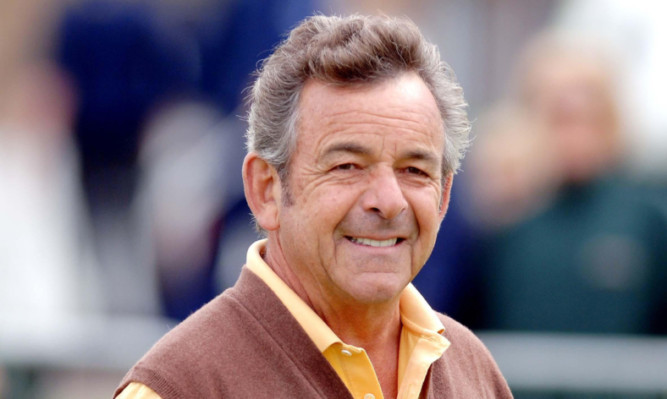Golf is getting waylaid by minor issues like anchoring and drugs when the real concern is the ball, believes double major winner Tony Jacklin.
The three-time European Ryder Cup captain described the Vijay Singh Deer Antler Spray farrago now headed for the courts after the Fijian filed a suit against the PGA Tour as “something on the fringes” and questioned the need to address anchoring and long putters.
At the World Corporate Championship celebrating its 20th anniversary and being held at the Carrick on Loch Lomond this week Jacklin said addressing how far the modern golf ball travelled would solve golf’s most significant issues.
“I think the issue most important is the ball, and the game is taking longer to play and people are moving away from it because it’s taking longer,” he said.
“Courses are getting longer as a result of the ball travelling further, and it’s therefore more expensive to maintain them. All these issues are more important than this putter issue.
“We’ve somehow got to get to a situation where we can get round a golf course in two and a half to three hours, and have fun doing it.”
Jacklin believes that it is too late to ban the anchored stroke as proposed by the R&A and USGA.
“Thirty years is too long,” he said.
“If they had nipped it after six months I could have seen the wisdom of it.
“I love the conventions of golf and understand nerve and all things involved with that. But you get Tim Clarke, who is 40ish, and for 30 years he hasn’t putted with anything else but a long putter. You can’t take that away from him now.
“They’re shepherding the game, but they should have recognised that a long, long time ago and done something about it.”
He’s seen nothing in his decades in the game to suggest that drugs were being used to improve performance and is ‘bemused’ by the Singh case.
“From my understanding of it there was such a small amount of the banned substance in this deer antler spray that he wasn’t doing anything that was going to make him a better golfer. I think it was something on the fringes,” he said.
“I never saw any evidence of golfers taking anything to improve their performance. The game won’t have it, if that makes any sense.
“The best players have to have all their wits about them and it’s about courage in the end and Dutch Courage doesn’t do it.”
The natural high of competing at the highest level in the most pressurized circumstances was what affected Jacklin, he recalls.
“I used to have to take sleeping pills at night because I was so wired that I needed something just to put me down,” he said.
“The adrenalin was flowing and I was on edge all the time. The challenge is controlling all of that. On reflection, the most important things I learned were mostly from Jack Nicklaus.
“After I won the Open (in 1969) I said to him I didn’t think I could be that nervous and still play and Jack said ‘I know, isn’t it great?’, which told me immediately that’s the way he was when he won too.
“Then I remember the Ryder Cup that same year when we were tied on the last hole Jack called me back off the 18th tee and said ‘are you nervous?’
“I said ‘I’m petrified’ and he said ‘I thought I’d ask because I feel the same way you do, if it’s any consolation.’
“When I look back over those times and those lessons, it comes down to one thing that counts most at the end of the day courage. You have to have the courage to commit and go through with whatever it is you’re trying to achieve.”
The Corporate Golf Challenge started as a UK-only event 20 years ago and now operates in more than 40 countries with more than one million players competing.
This year 12,000 companies entered and the event moves into China for the first time next year.
